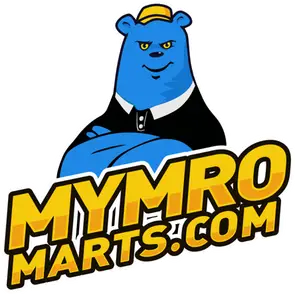The Connection Between Ford and New Holland
If you've ever shopped for tractor parts or services, you may have found yourself wondering, Does Ford still make tractors? The short answer is no—but there's a lot more to the story. Ford and New Holland tractors are often mentioned together, leading to questions about how they're connected. Are they the same brand? How did Ford become associated with agriculture in the first place? Let's dive into the fascinating history of Ford tractors and their evolution into New Holland.
The Beginnings of Ford Tractors
Ford's impact on the world of farming started with Henry Ford himself. Best known for revolutionizing automobile manufacturing with the Model T, Ford also brought innovation to agriculture. In 1917, the company introduced the Fordson Model F, one of the first mass-produced gasoline-powered tractors. It was a game-changer for farmers, providing an affordable, reliable option for mechanizing fieldwork.
Ford tractors remained a force in agriculture throughout the 20th century. By the 1960s, Ford consolidated its Fordson and automobile divisions into a unified global Ford tractor line. Popular models like the Ford 2000, Ford 3000, and Ford 5000 tractors emerged, powered by dependable Ford tractor engines. These machines were built to last and became staples on farms worldwide.
The Ford and New Holland Connection
So how does New Holland fit into all of this? New Holland, founded in 1895 in Pennsylvania, was an innovative manufacturer in its own right. Over the decades, it made its mark with inventions like the haybine mower-conditioner and the twin-rotor combine harvester. Ford saw New Holland's potential and acquired the company in 1986, forming an alliance that merged two legendary names in farming.
For a few years, tractors carried the Ford New Holland branding, combining Ford's heritage with New Holland's cutting-edge technology. However, this partnership was relatively short-lived. In 1991, Ford decided to leave the tractor business entirely, selling a controlling interest in Ford New Holland to Fiat.
Does Ford Still Make Tractors?
No, Ford hasn't produced tractors since the early 1990s. Under the agreement with Fiat, the "Ford New Holland" name could only be used for a limited time. By 2001, the Ford name disappeared from tractors altogether. Today, New Holland operates independently under the CNH Industrial umbrella, continuing to manufacture high-quality agricultural and construction equipment.
But that doesn't mean Ford and New Holland tractors have faded into history. Many of these durable machines, including classic Ford tractor engines, are still hard at work on farms today. Their reliability and simplicity make them favorites among farmers and collectors alike.
Finding Parts for Ford and New Holland Tractors
Whether you own an older Ford tractor, a Ford New Holland model, or a modern New Holland machine, keeping it running requires the right parts. Companies like Alliance Tractor specialize in sourcing parts for these iconic machines, helping farmers maintain their equipment's productivity.
For example, you might be searching for parts for a Ford 9000 tractor, a New Holland TC30, or even a Ford tractor engine rebuild kit. Alliance Tractor and similar dealers often have extensive inventories to cover these needs. If a part isn't in stock, their global supply chains ensure fast delivery.
A Legacy of Excellence
The story of Ford and New Holland tractors is a testament to innovation, durability, and the impact of great engineering on agriculture. While Ford no longer makes tractors, its legacy lives on through the machines it built and its lasting influence on the industry.
So, the next time you're looking for reliable replacement parts, remember the convenience and quality offered by MyMROmarts. From essential components for heavy machinery to specialized parts for tractors and excavators, this trusted online store continues to support industries worldwide. Whether you need fast delivery, expert assistance, or a vast selection of products, MyMROmarts ensures you’ll find everything you need to keep your equipment running at peak performance.
 Track Your Order
Track Your Order



